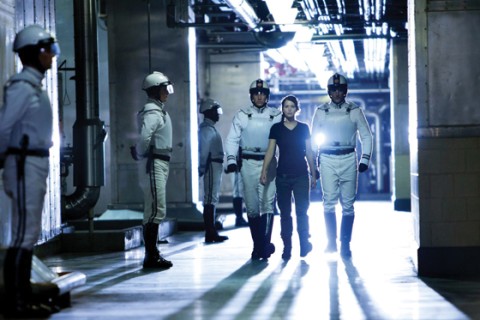The Hunger Games

The Hunger Games, Gary Ross’s film version of the first novel in Suzanne Collins’s young adult sci-fi trilogy, is a predictable hit after the biggest opening weekend since ancient Rome staged gladiatorial combats. But that doesn’t mean it’s any good.
The story is set in Panem, a totalitarian society in a postapocalyptic North America. All the power is in the Capitol, which controls 12 outlying districts identified only by numbers. Nearly a century earlier the Capitol had to put down a rebellion; ever since, in recognition of the districts’ fealty, each sends two adolescent “tributes”—one boy and one girl, chosen by lottery—to compete in the annual Hunger Games. This is a nationally televised event in which the single teen who survives the natural obstacles of the wild, the challenges artificially generated by the management of the games and the aggression of his or her competitors is proclaimed the victor.
The heroine is feisty, resourceful Katniss Everdeen (Jennifer Lawrence) from poverty-stricken District 12, who volunteers as a replacement when her fragile 12-year-old kid sister is chosen. Her male counterpart, Peeta Mellark (Josh Hutcherson), is a gentle boy of her age (both are 16) to whom she is indebted for a kindness he once showed her. Yet even if they manage to outwit the boys and girls from all the other districts, one of them will have to kill the other.




